
University of Pittsburgh Press
The University of Pittsburgh Press is a publisher with distinguished lists in a wide range of scholarly and cultural fields. They publish books for general readers, scholars, and students. The Press focuses on selected academic areas: Latin American studies, Russian and East European studies, Central Asian studies, composition and literacy studies, environmental studies, urban studies, the history of architecture and the built environment, and the history and philosophy of science, technology, and medicine. Their books about Pittsburgh and Pennsylvania include history, art, architecture, photography, biography, fiction, and guidebooks.
Their renowned Pitt Poetry Series represents many of the finest poets active today, as reflected in the many prestigious awards their work has garnered over the past four decades. In addition, the Press is home to the Agnes Lynch Starrett Poetry Prize, the Donald Hall Prize for Poetry, and, in rotation with other university presses, the Cave Canem Poetry Prize. They sponsor the prestigious Drue Heinz Literature Prize, which recognises the finest collective works of short fiction available in an international competition.
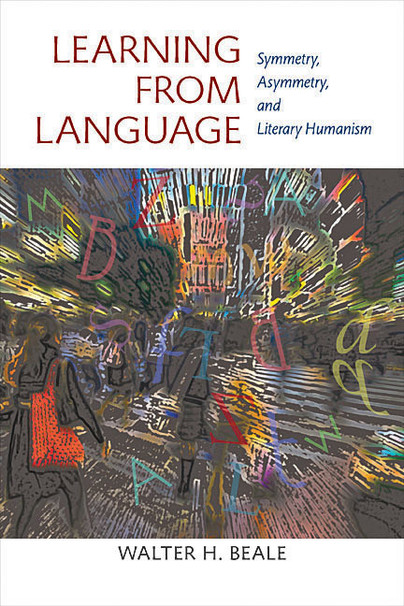
Format: Paperback
Pages: 240
ISBN: 9780822960386
Pub Date: 26 Jul 2009
Description:
In Learning from Language, Walter H. Beale seeks to bring together the disciplines of linguistics, rhetoric, and literary studies through the concept of symmetry (how words mirror thought, society, and our vision of the world).Citing thinkers from antiquity to the present, Beale provides an in-depth study of linguistic theory, development, and practice.
He views the historic division between the schools of symmetry and asymmetry (a belief that language developed as a structure independent of human experience), as built into the character of language itself, and as an impediment to literary humanism (the combined study of language, rhetoric, and literature to improve the competence and character of the individual).In his analysis, Beale outlines and critiques traditional claims of symmetry, then offers new avenues of approach to the subject. In doing so, he examines how important issues of human culture and consciousness have parallels in processes of language; how linguistic patterns relate to pervasive human problems; how language is an active participant in the expression, performance, and construction of reality; the concepts of designating versus naming; figurative language as a process of reenvisioning reality; and the linking of style to virtue by the ancients.Beale concludes that both asymmetrical and symmetrical elements exist in language, each with their own relevance, and that they are complementary, rather than opposing philosophies. The basic intuitions of symmetry that relate language to life are powerful and important to all of English studies. Combined with a love for the workings, sounds, and structures of language, Beale says, an understanding of symmetry can help guide the pursuit of literary humanism.
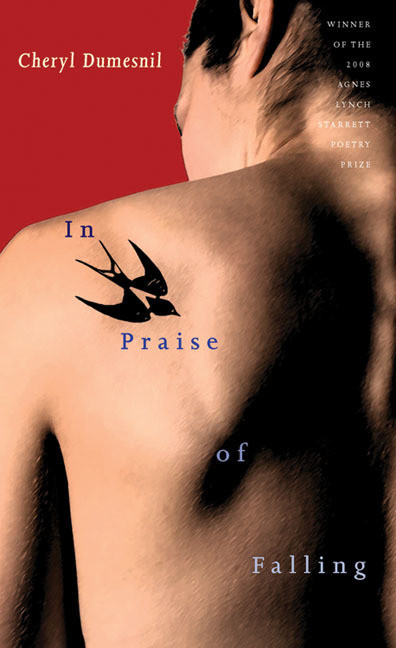
Format: Paperback
Pages: 88
ISBN: 9780822960416
Pub Date: 20 Jul 2009
Description:
The poems in this collection are the proverbial spring bulbs abandoned in the basement, growing toward a slim crack of sunlight. They are both aware of the limitations of social structures and forcefully committed to breaking out of those traps, urging toward a better way of living. The characters in these poems resist the twenty-first century\u2019s prescription for a life of emotional-spiritual bankruptcy, reaching toward an ever-elusive glimmer on the horizon.

Format: Paperback
Pages: 256
ISBN: 9780822960232
Pub Date: 19 Jul 2009
Description:
Corruption has blurred, and in some cases blinded, the vision of democracy in many Latin American nations. Weakened institutions and policies have facilitated the rise of corrupt leadership, election fraud, bribery, and clientelism. Corruption and Democracy in Latin America presents a groundbreaking national and regional study that provides policy analysis and prescription through a wide-ranging methodological, empirical, and theoretical survey.
The contributors offer analysis of key topics, including: factors that differentiate Latin American corruption from that of other regions; the relationship of public policy to corruption in regional perspective; patterns and types of corruption; public opinion and its impact; and corruption's critical links to democracy and governance.Additional chapters present case studies on specific instances of corruption: diverted funds from a social program in Peru; Chilean citizens' attitudes toward corruption; the effects of interparty competition on vote buying in local Brazilian elections; and the determinants of state-level corruption in Mexico under Vicente Fox.The volume concludes with a comparison of the lessons drawn from these essays to the evolution of anticorruption policy in Latin America over the past two decades. It also applies these lessons to the broader study of corruption globally to provide a framework for future research in this crucial area.
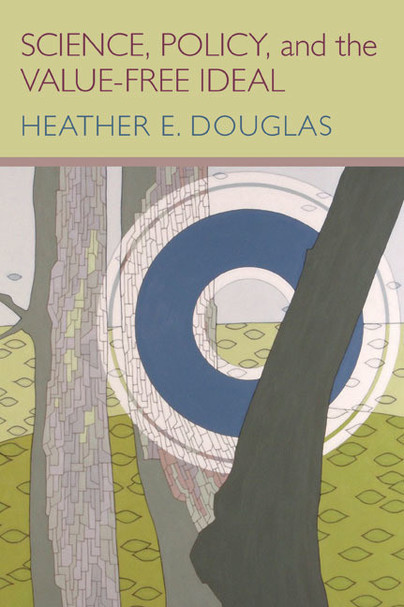
Format: Paperback
Pages: 256
ISBN: 9780822960263
Pub Date: 15 Jul 2009
Description:
The role of science in policymaking has gained unprecedented stature in the United States, raising questions about the place of science and scientific expertise in the democratic process. Some scientists have been given considerable epistemic authority in shaping policy on issues of great moral and cultural significance, and the politicizing of these issues has become highly contentious.Since World War II, most philosophers of science have purported the concept that science should be \u201cvalue-free.
\u201d In Science, Policy and the Value-Free Ideal, Heather E. Douglas argues that such an ideal is neither adequate nor desirable for science. She contends that the moral responsibilities of scientists require the consideration of values even at the heart of science. She lobbies for a new ideal in which values serve an essential function throughout scientific inquiry, but where the role values play is constrained at key points, thus protecting the integrity and objectivity of science. In this vein, Douglas outlines a system for the application of values to guide scientists through points of uncertainty fraught with moral valence.Following a philosophical analysis of the historical background of science advising and the value-free ideal, Douglas defines how values should-and should not-function in science. She discusses the distinctive direct and indirect roles for values in reasoning, and outlines seven senses of objectivity, showing how each can be employed to determine the reliability of scientific claims. Douglas then uses these philosophical insights to clarify the distinction between junk science and sound science to be used in policymaking. In conclusion, she calls for greater openness on the values utilized in policymaking, and more public participation in the policymaking process, by suggesting various models for effective use of both the public and experts in key risk assessments.
Brezhnev's Folly
The Building of BAM and Late Soviet Socialism
Format: Paperback
Pages: 232
ISBN: 9780822961383
Pub Date: 10 Jun 2009
Description:
Heralded by Soviet propaganda as the \u201cPath to the Future,\u201d the Baikal-Amur Mainline Railway (BAM) represented the hopes and dreams of Brezhnev and the Communist Party elite of the late Soviet era. Begun in 1974, and spanning approximately 2,000 miles after twenty-nine years of halting construction, the BAM project was intended to showcase the national unity, determination, skill, technology, and industrial might that Soviet socialism claimed to embody. More pragmatically, the Soviet leadership envisioned the BAM railway as a trade route to the Pacific, where markets for Soviet timber and petroleum would open up, and as an engine for the development of Siberia.
Despite these aspirations and the massive commitment of economic resources on its behalf, BAM proved to be a boondoggle-a symbol of late communism's dysfunctionality-and a cruel joke to many ordinary Soviet citizens. In reality, BAM was woefully bereft of quality materials and construction, and victimized by poor planning and an inferior workforce. Today, the railway is fully complete, but remains a symbol of the profligate spending and inefficiency that characterized the Brezhnev years.In Brezhnev's Folly, Christopher J. Ward provides a groundbreaking social history of the BAM railway project. He examines the recruitment of hundreds of thousands of workers from the diverse republics of the USSR and other socialist countries, and his extensive archival research and interviews with numerous project workers provide an inside look at the daily life of the BAM workforce. We see firsthand the disorganization, empty promises, dire living and working conditions, environmental damage, and acts of crime, segregation, and discrimination that constituted daily life during the project's construction. Thus, perhaps, we also see the final irony of BAM: that the most lasting legacy of this misguided effort to build Soviet socialism is to shed historical light on the profound ills afflicting a society in terminal decline.
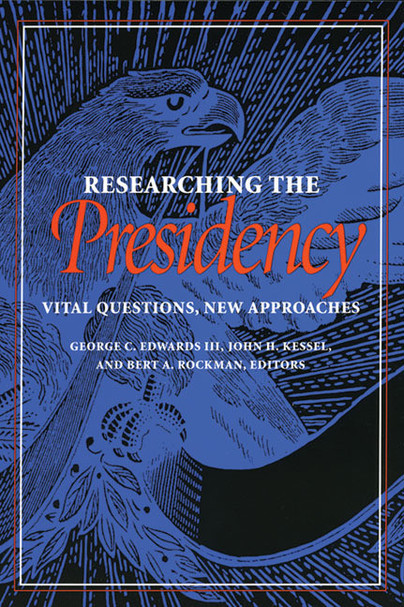
Format: Paperback
Pages: 512
ISBN: 9780822954941
Pub Date: 01 Jun 2009
Description:
This collection brings together two groups of scholars. The first, persons active in presidential research, assess the state of the literature in the recruitment and selection of presidential candidates, presidential personality, advisory networks, policy making, evaluations of presidents, and comparative analysis of chief executives.A second group of scholars, specialists in cognitive psychology, formal theory, organization theory, leadership theory, institutionalism, and methodology, apply their expertise to the analysis of the presidentcy in an effort to generate innovative approaches to presidential research.
By taking a fresh look at a well-established field, these groundbreaking essays encourage scholars to renew their emphasis on explanation in research.
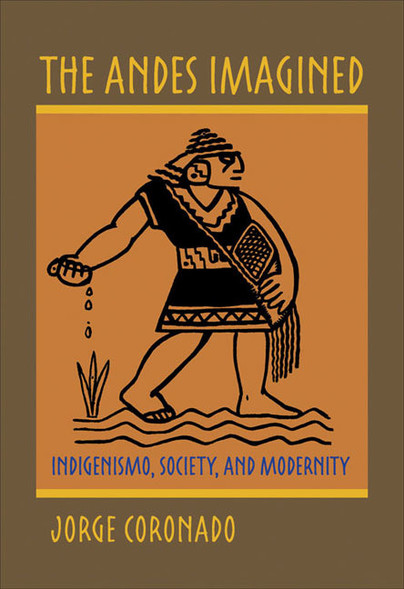
Format: Paperback
Pages: 224
ISBN: 9780822960249
Pub Date: 31 May 2009
Series: Illuminations
Description:
In The Andes Imagined, Jorge Coronado not only examines but also recasts the indigenismo movement of the early 1900s. Coronado departs from the common critical conception of indigenismo as rooted in novels and short stories, and instead analyzes an expansive range of work in poetry, essays, letters, newspaper writing, and photography. He uses this evidence to show how the movement's artists and intellectuals mobilize the figure of the Indian to address larger questions about becoming modern, and he focuses on the contradictions at the heart of indigenismo as a cultural, social, and political movement.
By breaking down these different perspectives, Coronado reveals an underlying current in which intellectuals and artists frequently deployed their indigenous subject in order to imagine new forms of political inclusion. He suggests that these deployments rendered particular variants of modernity and make indigenismo representational practices a privileged site for the examination of the region's cultural negotiation of modernization. His analysis reveals a paradox whereby the un-modern indio becomes the symbol for the modern itself.The Andes Imagined offers an original and broadly based engagement with indigenismo and its intellectual contributions, both in relation to early twentieth-century Andean thought and to larger questions of theorizing modernity.
Crystal and Arabesque
Claude Bragdon, Ornament, and Modern Architecture
Format: Hardback
ISBN: 9780822943624
Pub Date: 15 Apr 2009
Description:
From the 1890s to the 1930s, Claude Bragdon enjoyed an international reputation as an architect, designer, and critic working in the progressive tradition associated with Louis Sullivan, Frank Lloyd Wright, and the Prairie School. In 1915 Bragdon created “projective ornament,” a system of geometric patterns designed to serve as a universal form-language integrating not only architecture, art, and design, but also a society divided by differences of class, gender, religion, culture, and national origin. Spreading across the surfaces of buildings, posters, books, and the settings Bragdon designed for massive community singing festivals, projective ornament came to symbolize the progressive potential of modernity for thousands of Americans.
Bragdon disappeared from memory when mid-century histories promoted a narrow view of modern architecture that emphasized functional planning, industrial building technique, continuous space, and the suppression of ornament. But his work left an ongoing legacy when younger architects such as Buckminster Fuller found new ways of using geometric pattern to promote architectural and social integration. Now that architects and designers are once again generating innovative work based on geometry, ornament, and pattern, Crystal and Arabesque draws on a rich trove of previously unpublished work to show how American modernists committed to social reform used ornament in new ways to engage the media and audiences of mass society.
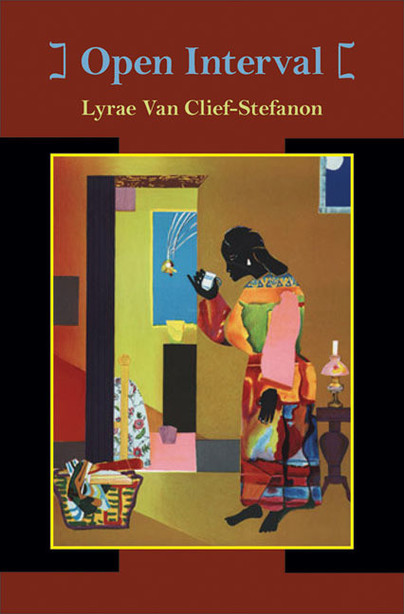
Format: Paperback
Pages: 72
ISBN: 9780822960362
Pub Date: 10 Apr 2009
Description:
Drawing upon intersections of astronomy and mathematics, history, literature, and lived experience, the poems in Open Interval locate the self in the interval between body and name.
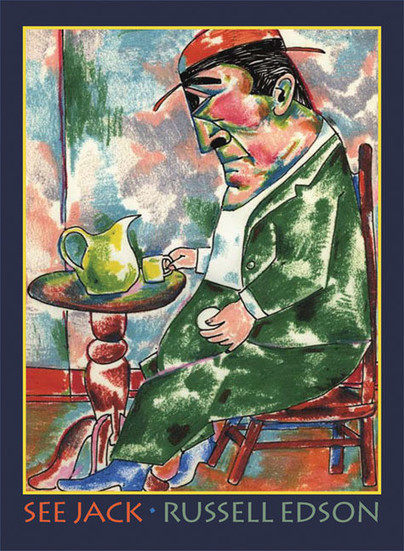
Format: Paperback
Pages: 80
ISBN: 9780822960300
Pub Date: 20 Mar 2009
Description:
“An artist who moonlights as a dentist. A worm who's eternal. A farmer who milks his cow to death.
Not to mention the guy with a belly button for an eye. Russell Edson, self-named Little Mr. Prose Poem, returns with See Jack, a book of fractured fairy tales, whose impeccable logic undermines logic itself, a book that champions what he has called elsewhere 'the dark uncomfortable metaphor.' 'What better way to die,' he writes in the final prose poem, 'than waiting for the fat lady to sing in the make-believe of theater, where nothing's real, not the fat lady, not even death . . . ' See Jack may be Edson's best book yet—proof that his imaginative powers keep growing. What a deliciously scary thought!” —Peter Johnson
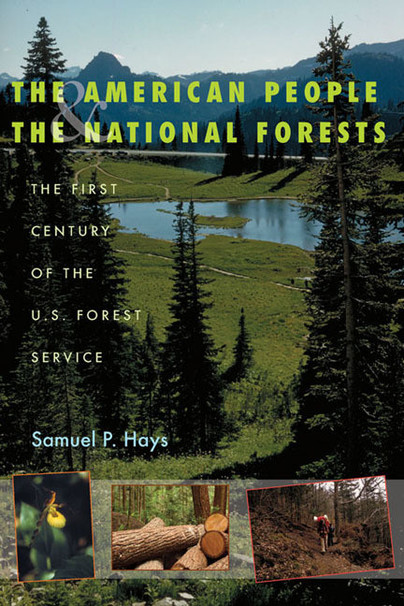
Format: Paperback
Pages: 272
ISBN: 9780822960201
Pub Date: 08 Mar 2009
Description:
The year 2005 marked the centennial of the founding of the United States Forest Service (USFS). Samuel P. Hays uses this occasion to present a cogent history of the role of American society in shaping the policies and actions of this agency.
From its establishment in 1905 under the auspices of the Department of Agriculture, timber and grazing management dominated the agency's agenda. Due to high consumer demand for wood products and meat from livestock, the USFS built a formidable system of forest managers, training procedures, and tree science programs to specifically address these needs. This strong internal organization bolstered the agency during the tumultuous years in the final one-third of the century—when citizens and scientists were openly critical of USFS policies—yet it restricted the agency's vision and adaptability on environmental issues. A dearth of ecological capabilities tormented the USFS in 1960 when the Multiple-Use and Sustained-Yield Act set new statutes for the preservation of wildlife, recreation, watershed, and aesthetic resources. This was followed by the National Forest Management Act of 1976, which established standards for the oversight of forest ecosystems. The USFS was ill equipped to handle the myriad administrative and technological complexities that these mandates required. In The American People and the National Forests, Hays chronicles three distinct periods in USFS history, provides a summarizing \u201clegacy\u201d for each, and outlines the public and private interests, administrators, and laws that guided the agency's course and set its priorities. He demonstrates how these legacies affected successive eras, how they continue to influence USFS policy in the twenty-first century, and why USFS policies should matter to all of us.
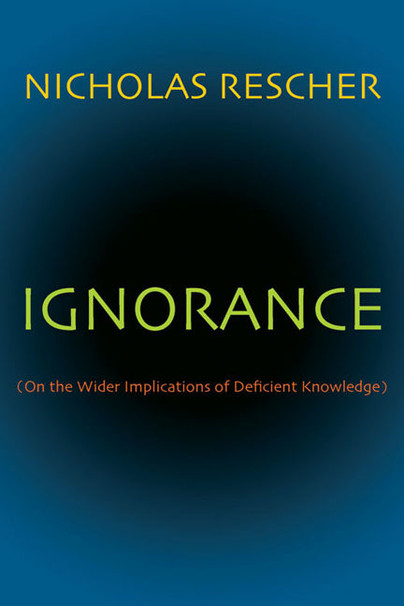
Format: Paperback
Pages: 160
ISBN: 9780822960140
Pub Date: 28 Feb 2009
Description:
Historically, there has been great deliberation about the limits of human knowledge. Isaac Newton, recognizing his own shortcomings, once described himself as \u201ca boy standing on the seashore . .
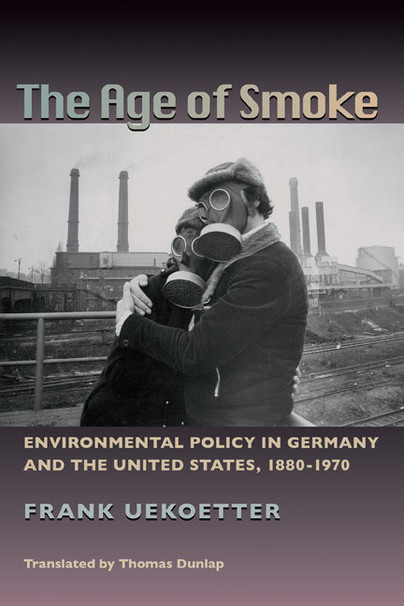
Format: Paperback
Pages: 336
ISBN: 9780822960126
Pub Date: 15 Feb 2009
Description:
In 1880, coal was the primary energy source for everything from home heating to industry. Regions where coal was readily available, such as the Ruhr Valley in Germany and western Pennsylvania in the United States, witnessed exponential growth-yet also suffered the greatest damage from coal pollution. These conditions prompted civic activism in the form of \u201canti-smoke\u201d campaigns to attack the unsightly physical manifestations of coal burning.
This early period witnessed significant cooperation between industrialists, government, and citizens to combat the smoke problem. It was not until the 1960s, when attention shifted from dust and grime to hazardous invisible gases, that cooperation dissipated, and protests took an antagonistic turn.The Age of Smoke presents an original, comparative history of environmental policy and protest in the United States and Germany. Dividing this history into distinct eras (1880 to World War I, interwar, post-World War II to 1970), Frank Uekoetter compares and contrasts the influence of political, class, and social structures, scientific communities, engineers, industrial lobbies, and environmental groups in each nation. He concludes with a discussion of the environmental revolution, arguing that there were indeed two environmental revolutions in both countries: one societal, where changing values gave urgency to air pollution control, the other institutional, where changes in policies tried to catch up with shifting sentiments.Focusing on a critical period in environmental history, The Age of Smoke provides a valuable study of policy development in two modern industrial nations, and the rise of civic activism to combat air pollution. As Uekoetter's work reveals, the cooperative approaches developed in an earlier era offer valuable lessons and perhaps the best hope for future progress.
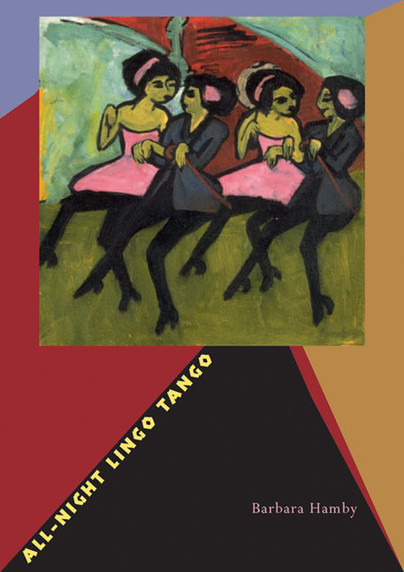
Format: Paperback
Pages: 88
ISBN: 9780822960171
Pub Date: 11 Feb 2009
Description:
This collection is a love letter to language with poems that are drunk and filled with references to the hyperkinetic world of the twenty-first century. Yet Zeus and Hera tangle with Leda on the interstate; Ava Gardner becomes a Hindu princess; and Shiva, the Destroyer, reigns over all. English is the primary god here, with its huge vocabulary and omnivorous gluttony for new words, yet the mystery of the alphabet is behind everything, a funky puppet master who can make a new world out of nothing.
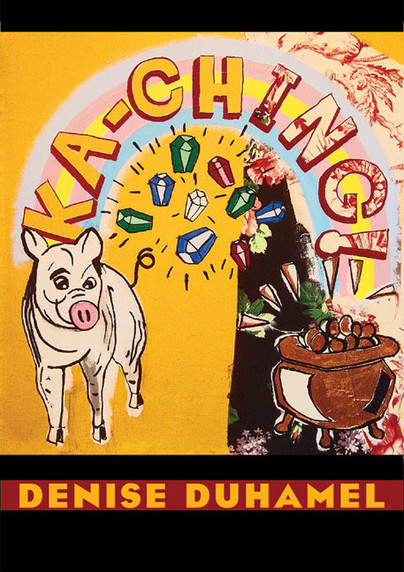
Format: Paperback
Pages: 72
ISBN: 9780822960218
Pub Date: 31 Jan 2009
Description:
Ka-Ching! is a book of poems that explores America’s obsession with money. It also includes a crown of sonnets about e-bay, sestinas on the subjects of Sean Penn and the main characters of fairytales, a pantoum that riffs on a childhood riddle, and a villanelle inspired by bathroom grafitti.

Format: Paperback
Pages: 128
ISBN: 9780822960119
Pub Date: 30 Jan 2009
Description:
In Error, Nicholas Rescher presents a fresh analysis of the occurrence, causality, and consequences of error in human thought, action, and evaluation. Rescher maintains that error-avoidance and truth-achievement are distinct but equally important factors for rational inquiry, and that error is inherent in the human cognitive process (to err is human). He defines three main categories of error: cognitive (failure to realize truths); practical (failure related to the objective of an action); and axiological (failure in evaluation), and articulates the factors that contribute to each.
His discussion also provides a historical perspective on the treatment of error in Greek philosophy, and by later thinkers such as Aquinas, Descartes, Spinoza, Leibniz, James, Royce, Moore, and Russell.Error is an important reexamination of the significance of error to the fields of philosophical anthropology, epistemology, ontology, and theology. As Rescher\u2019s study argues, truth and error are inexorably intertwined—one cannot exist without the other. Error is an unavoidable occurrence in the cognitive process—without missteps on the path to truth, truth itself cannot be attained. The risk of error is inherent in the quest for truth.















